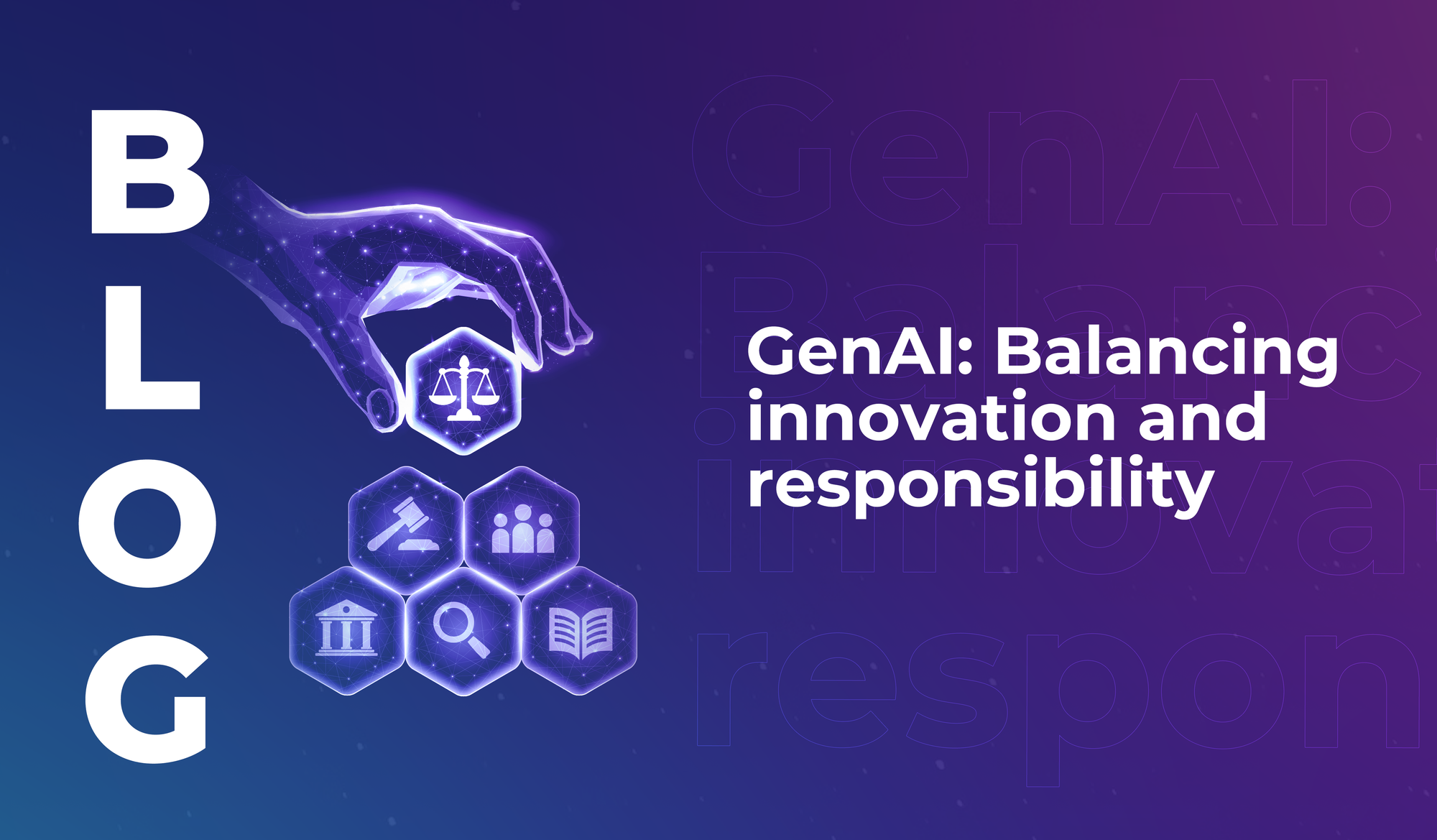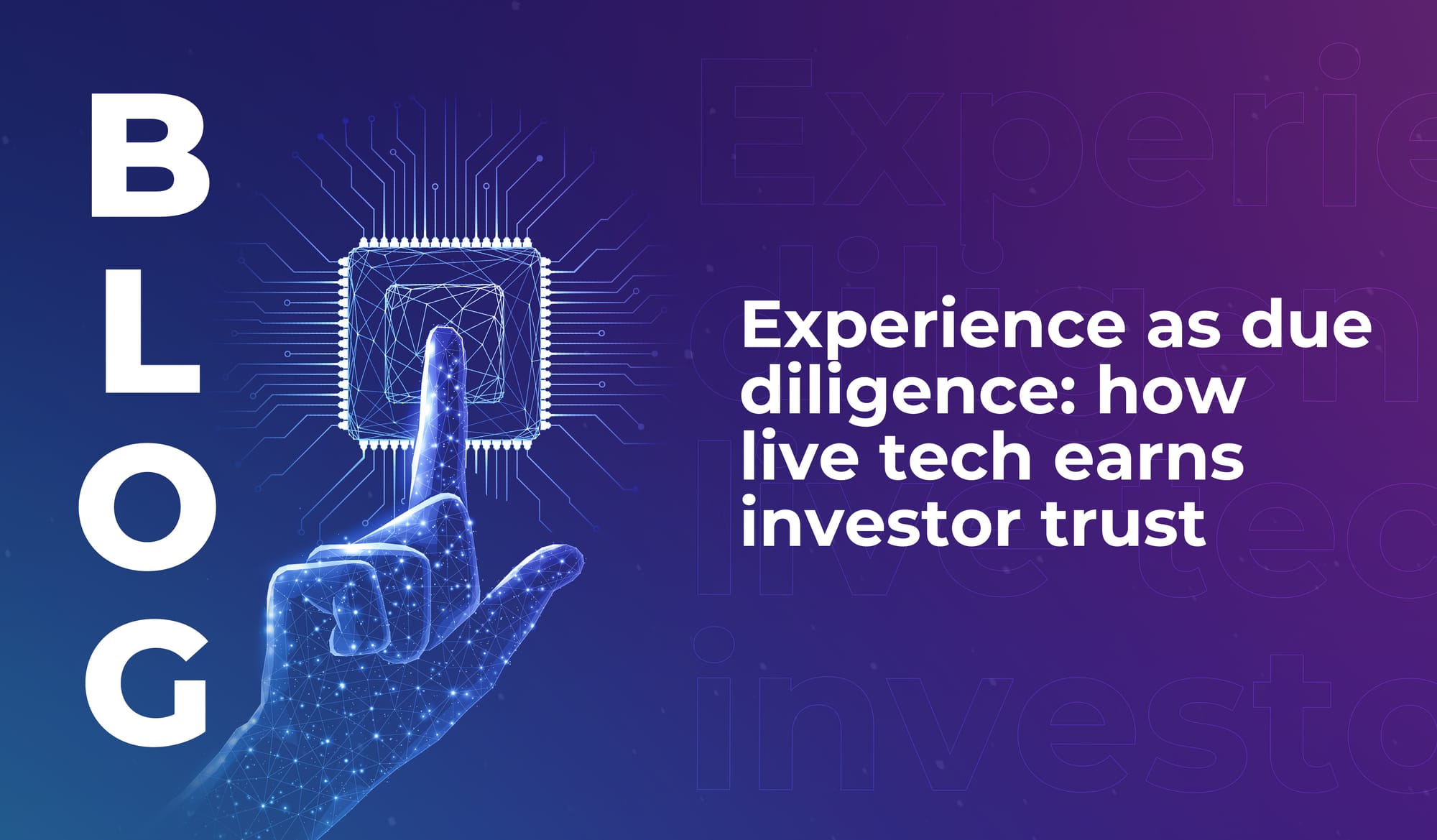
Why CoLAB works: how global brands use events to enter new markets
Learn how global brands use events to enter new markets. Build trust and accelerate relevance through CoLAB collaborations at LEAP.


Have you ever wondered how artificial intelligence experts actually feel about GenAI?
As AI continues to make waves in almost every area of work (and across much of our lives outside of work as well), we’re delving into the perspectives of some of the people who are digging deep into AI ethics, research, and deployment.
Discover the sparks of their enthusiasm, and the notes of caution that we need to consider if we want an equitable and positive future with AI.
Dr. Kathrin Kind-Trueller (Chief Data Scientist and AI Director Nordics) envisions generative AI as a harmonious blend of creativity and computation.
She said:
"Imagine the power of creating content that not only mimics human intelligence but does so with an elegance and efficiency that transcends our wildest dreams. Generative AI, with its ability to produce text, images, and even code, represents a frontier where creativity meets computation."
We’re in an era of transformative potential, when GenAI could democratise creation and break down the boundaries that surround innovation.
For gaming influencer Jordi van den Bussche (Founder and CEO at JVDB Studios), influencers will play a critical role in making that democratisation possible – by helping to shape public perceptions of tech.
"As an influencer, my perspective on tech and the future is significantly shaped by the diversity of experiences and interactions I'm exposed to,” he said. “This position allows me to see firsthand the potential of technology to connect, inspire, and transform our daily lives."
Jordi advocates for influencers to use their platforms to educate audiences about AI, democratise access to technology, and promote ethical AI development.
Dr. Lin Zhou (SVP and Chief Information Officer at The New School) highlighted the impact of generative AI on education. The way that technology could transform the way we learn is massive – and it’s a really good reason to champion the ethical development of AI. If AI could help people learn more easily (and learn about the things they really want to learn) then it could change entire economies and societies for the better.
"One cannot overstate the transformative potential of emerging technologies like GenAI,” Dr. Zhou said, “heralding the advent of the fifth industrial revolution. These innovations render the integration of technology into classroom and lab environments indispensable."
H envisions personalised learning experiences powered by AI, enabling educators to tailor educational pathways to individual student strengths and aspirations.
When we spoke to Elnaz Sarraf (Founder and CEO at ROYBI Robot), she highlighted the importance of collaboration in fostering positive perceptions of AI and robotics.
"First, companies need to come together and create awareness towards the positive sides of AI and robots. We need to continue educating people that AI and robots can accelerate the quality of life in many areas such as health, autonomous driving, finance, education, and more."
Elnaz also called for more balanced media reporting and thoughtful regulation to encourage innovation while addressing public concerns:
“...the media and government can regulate the use of advanced technologies but also allow for innovation and creativity. They need to stop spreading misinformation or fear among people that companies using AI and robotics have only one purpose and that is to control people’s lives. Yes, there will always be companies that will misuse data, but there are also many companies and startups that use AI and robots to empower humans as well as youth.”
It’s an exciting time to work in AI. But there’s also a growing responsibility on the shoulders of AI developers, and those deploying GenAI in a wide range of use cases.
Concerns about the possibility that AI tech is developing faster than we’re able to stay in control of it are growing; and those working in the AI space are feeling the pressure to investigate the potential consequences of any AI deployment as early as possible, before those consequences have an impact on people’s lives.
Dr. Kind-Trueller put it like this:
“Generative AI, with its ability to produce text, images, and even code, represents a frontier where creativity meets computation. It's like watching the birth of new stars, each flicker a testament to the potential within the vast expanse of data and algorithms we've yet to fully explore.
“But, as a stoic might muse, with great power comes great responsibility. The excitement is not merely in the creation but in the thoughtful cultivation of these technologies. As we stand on the shoulders of giants, looking into the future, the challenge lies not just in harnessing this power but in guiding it with wisdom, ensuring it serves not just the few but the many.”

Learn how global brands use events to enter new markets. Build trust and accelerate relevance through CoLAB collaborations at LEAP.

At global tech events, your brand isn’t competing for space – it’s competing for memory. Memory is built through participation, so the brand collaboration opportunities at LEAP are designed for it.

For investors at LEAP, experience is the first stage of due diligence – and has more impact than a pitch deck. Find out how the Tech Arena fast-tracks investor conversations.

Learn how global brands use events to enter new markets. Build trust and accelerate relevance through CoLAB collaborations at LEAP.

At global tech events, your brand isn’t competing for space – it’s competing for memory. Memory is built through participation, so the brand collaboration opportunities at LEAP are designed for it.

For investors at LEAP, experience is the first stage of due diligence – and has more impact than a pitch deck. Find out how the Tech Arena fast-tracks investor conversations.